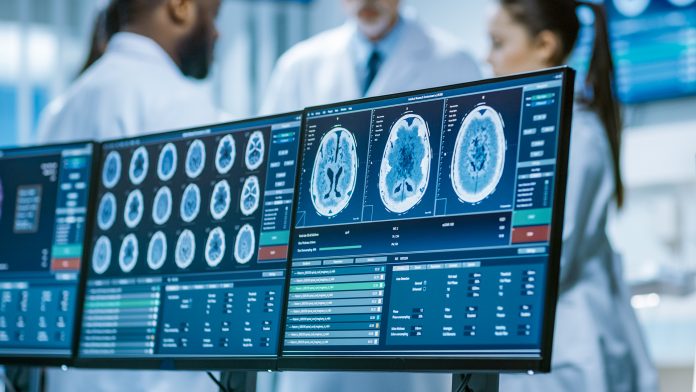A major clinical trial has shown that MRI and tracking can guide the delivery of magnetic stimulation to the brains of people with severe depression.
The patients with severe depression who received the MRI treatment will see their symptoms ease for at least six months, improving their quality of life.
The results revealed that, on average, participants showed substantial improvements in the severity of their depression and anxiety. With MRI neuronavigated Transcranial Magnetic Simulation (TMS), the patients had better function over 26 weeks. This was a significant increase from the previously reported improvement lasting one to three months.
The BRIGhTMIND randomised controlled trial was led by experts at the University of Nottingham. The trial was hosted by Nottinghamshire Healthcare NHS Foundation Trust, and was funded by a National Institute for Health and Care Research (NIHR) and Medical Research Council (MRC) partnership.
It involved five centres across England (Nottingham, Camden and Islington, Newcastle, Northampton and Oldham).
The results of the trial were published in Nature Medicine.
About Transcranial Magnetic Simulation (TMS)
TMS is an outpatient treatment where people have powerful magnetic pulses delivered to the left side of their head, in front of the temporal area of the scalp. Over a four-to-six-week period, the person has 20 sessions.
Since the 1980s, the method has been used to treat people with severe depression.
Now, there is evidence for a longer-lasting benefit of this treatment, as the researchers target the area of the brain where stimulation is thought to be helpful.
A third of people with depression have treatment-resistant depression
According to WHO, severe depression is the leading cause of disability loss years worldwide. Suicide from depression is the biggest killer in people aged between 15 and 49.
Antidepressants and therapy help two-thirds of people with depression, but the remaining third have treatment-resistant depression. This is defined as a lack of response to two courses of antidepressants.
The trial aims to look at whether the effects of using TMS can be extended to at least six months. This would mean that patients with treatment-resistant depression who respond to the treatment might only require one to two courses of treatment each year to remain free from symptoms.
Using MRI to deliver the treatment
The trial, the first of its size to look at outcomes at six months, suggests this might be achieved using functional MRI with TMS to define the exact area of the brain to target. MRI is not typically used in delivering this treatment.
The team used neuronavigational, a computerised tracking system using light to deliver the TMS. This is a way of pinpointing the area of stimulation so that the same area can be targeted for all treatment sessions.
“Ideally, when people come for a TMS session, they would sit in the exact same place, but this is rarely going to happen. This method uses light from both ear lobes and the top of the nose to measure the stimulation point from the first time a patient has the treatment.
“The MRI personalises the site of stimulation, and then neuronavigation makes sure the same site is being stimulated at each treatment session. This reduces the variability in stimulation at each session. Since the magnetic pulse can be focused, there are usually only minor short-lasting side-effects, and the person can return to their daily activities immediately on return from the hospital,” said Richard Morriss, Professor of Psychiatry in the School of Medicine and Lead for the Centre for Mood Disorders at the Institute of Mental Health.
A total of 255 participants with severe depression took part in the trial, completing the 20 TMS sessions. All participants were referred by their GP to take part.
An improved quality of life
More than two-thirds of participants responded to the treatment, with a third showing 50% improvement in terms of their symptoms. A fifth of patients with severe depression managed to move into remission and stay there.
“Given these patients are people who have not responded to two previous treatment attempts and have been ill for an average of seven years, to get such a significant response rate and a fifth who have a sustained response is really encouraging,” said Professor Morriss.
He added: “Patients who responded to the treatment could stay relatively well compared to how they were previously, with as little as one or two treatments a year. The changes we saw were substantial, not only in reducing their depression symptoms, but they were large enough to improve concentration, memory, anxiety and subsequently, their quality of life.
“The results have already persuaded three NHS Mental Health Trusts, including Nottinghamshire Healthcare NHS Foundation Trust, to routinely offer new TMS services for treatment-resistant depression.”









